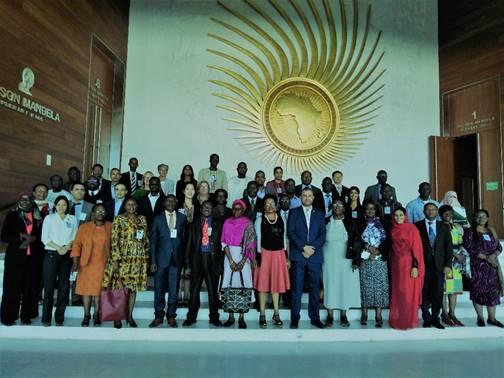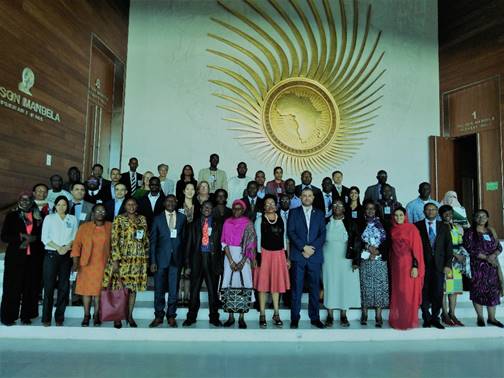
Africa CDC issues guidance to Member States to improve detection of outbreaks and other public health threats
November 28, 2018
African Region
Ethiopia
Addis Ababa, Ethiopia
Addis Ababa, 28 November 2018. Africa Centres for Disease Control and Prevention (Africa CDC) released guidance today to improve detection of outbreaks and other public health threats in African Union Member States.

Under the coordination of Africa CDC, the “Framework for Event-Based Surveillance” is a product of extensive consultation and technical input by key experts from African Union Member States, the World Health Organization (WHO), China CDC, US CDC, Médecins sans Frontières (MSF), International Federation of Red Cross and Red Crescent Societies (IFRC), and non-profit organizations.
“We are grateful that Africa CDC has involved Member States in this process as the forum has provided a platform to share experiences and best practices among ourselves and with experts. We look forward to Africa CDC support in implementing the framework,” said Dr Ibrahim Sonko from the Ministry of Health Senegal.
Organized as five interlinked modules and supporting annexes, the frameworkprovides guidance to public health practitioners seeking to implement event-based surveillance (EBS) at the national, intermediate, health facility, and community levels in their countries.
“This framework will complement the indicator-based surveillance to provide a robust system of surveillance in the continent,” said Dr Benjamin Djoudalbaye, Head of Policy and Health Diplomacy at Africa CDC.
Among others, the document describes how countries can integrate EBS into existing surveillance systems, how to use hotlines and media scanning for EBS, and the role of the community in early capturing and reporting of events.
“Collaboration between WHO, Africa CDC and other partners to support countries in strengthening Integrated Disease Surveillance and Response (IDSR) indicator and event-based surveillance is not only a necessity but common sense for synergy and complementarity for universal health security in Africa,” said Dr Ambrose Talisuna from WHO Africa Regional Office.
As a living document, the framework will undergo further reviews in the future after it has been tested by Member States to make it more adaptable to local situations. Other supporting documents will also be developed to facilitate its effectiveness, including training materials, monitoring and evaluation tools, an online education platform and a reporting platform.
“This framework is still work in progress and would be tested and enriched to produce a more comprehensive document,” said Dr Djoudalbaye.
EBS is a component of early warning and response, which can increase the sensitivity of a surveillance system by detecting signals before an event becomes large enough to be identified through traditional surveillance systems such as the IDSR. It is different from other types of public health surveillance, because it is not based on routine monitoring of indicators and automated thresholds for action but on screening of all available information to detect any event happening in the community such as unusual disease or deaths of humans or animals, unusual or clustering of cases, etc. Some African countries are already implementing EBS, including Cote d’Ivoire, Egypt, Ethiopia, Cameroon, Ghana, and Burkina Faso.
Source website: www.au.int
Downloadable copies of the framework are available online at: English version French version Arabic version